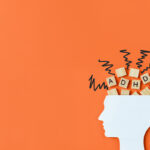Negative mantras that play on a constant loop in our heads, like “I don’t deserve success” can be transformed into, “Wait a minute; I do deserve success because I work hard to achieve it.”
But it takes a lot of work.
Cognitive Behavioral Therapy (CBT) addresses that kind of negative self-talk along with unhealthy thought-patterns that lead to self-destructive beliefs and behaviors.
CBT is one of the main types of psychotherapy (talk therapy) that explores the relationship between one’s thoughts, feelings, and behaviors, and is widely considered to be an effective treatment for many mental illnesses.
Let’s take a look at how CBT addresses emotional challenges.
Who It’s For
CBT has a large treatment population tent, helpful for young kids, teenagers, adults, and families, and it treats a wide spectrum of conditions, including but certainly not limited to:
- Depression
- Anxiety
- Post Traumatic Stress Disorder
- Eating disorders
- Obsessive Compulsive Disorder
- Chronic pain
How It Works
Many people with mental health disorders are saddled by distortions of perception and reality. The programmatic nature of Generalized Anxiety Disorder, for example, can cause an individual to see danger where there isn’t any. This is what CBT targets.
According to the National Alliance on Mental Illness (NAMI):
“The core principles of CBT are identifying negative or false beliefs and testing or restructuring them. Oftentimes someone being treated with CBT will have homework in between sessions where they practice replacing negative thoughts with more realistic thoughts based on prior experiences or record their negative thoughts in a journal.”
Therapists who specialize in CBT help clients understand the way they view the world and work with them to change their responses to circumstances. Sessions can focus on the present, identifying a client’s disruptive thoughts and feelings, helping them recognize that they are mostly invalid.
An example of a technique that therapists use is reframing. A worried parent whose child failed a math test might have spiraling thoughts that her daughter will flunk out of school. A CBT reframe would be, “Everyone gets an F at some point in their schooling. Hell, even I did. This is an opportunity for my daughter to learn from her mistake and get back on the horse.”
It Encourages You To Take Charge
One of the main reasons why CBT is an effective form of behavioral health treatment is that it trains individuals to be proactive. Any type of therapy session, healthy as it is, can be mentally exhausting. You may recount a traumatic event, be in the throes of an anxious episode, or feel like a ball of fury. It’s all heady stuff, so feeling drained afterward is understandable.
Similar to physical therapy, where your PT gives you a schedule of exercises to rehabilitate your body, CBT teaches you mental exercises to rehabilitate your brain. You will achieve the best results by leveraging the tools you learn in your sessions so that you can adjust your thinking and approach to everyday situations.
If you believe that you could benefit from CBT, research licensed behavioral health professionals with ample experience and training in this area.
CBT With Chicago Mind Solutions
Chicago Mind Solutions specializes in Cognitive Behavioral Therapy and other evidence-based therapeutic interventions to treat an array of mental health conditions. For more information about our treatments and teletherapy options, please contact us at (224) 723-5050 or email info@chicagomindsolutions.com.






